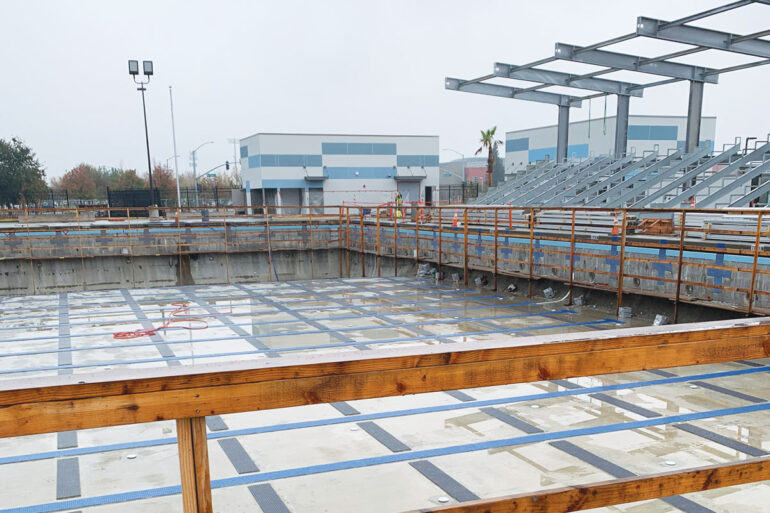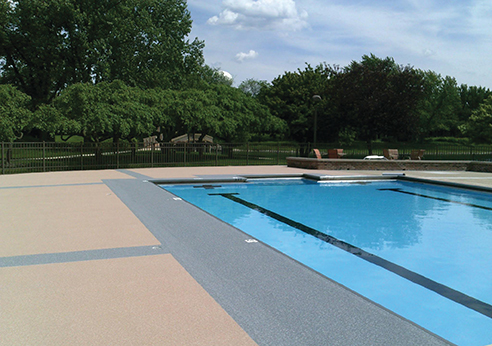Commercial Pool Rentals

Questions to consider before diving into a pool rental agreement
When the pandemic shut down commercial aquatic facilities, some parents sought out independent swimming instructors to teach private lessons out of other places. In turn, these individual instructors or swim schools rented out unregulated residential pool space or other open aquatic venues to provide services. But these seemingly simple transactions created potentially complex legal situations regarding injury or death as seen in a recent case where a boy died during a swimming lesson at a private pool in Burke County, Georgia.
Accepting these sublease rentals was well-intentioned and the extra revenue truly appealing to make up budget shortfalls, but many organizations jumped into the deep end without considering all aspects of this relationship.
When negotiating fair pool rental terms and planning for increased usage at an aquatic facility, it is important to consider the following factors.
Note: This article is solely for the purpose of renting commercial swimming pool space that is permitted to operate as such by a regulatory agency. Residential swimming pool rentals via programs such as Swimply or Airbnb are outside the scope of this article. This should not be taken as legal advice. Always discuss pool rentals with your insurance provider and hire a lawyer to provide legal guidance and a business contract.
What type of agent or group will you rent to?
Private individuals? Nonprofit groups? For-profit businesses? “Some groups come with their own rules in place, but not all [are that organized,]” says Joaquin Zamora, recreation supervisor with the city of Sanger, California. “The groups that do not have rules in place seem to not have a sense of rules at all.”
What types of activities will you accept?
Private or group swimming lessons? Aquatic fitness? Free swim? Scuba? Water polo? “We have our own list of allowable activities from our insurance company, which gives us a good back-up when renters are wanting to push or break boundaries,” says Stephanie Clark-Sleep, aquatics director at YMCA of Natrona County in Casper, Wyoming. “I also require other businesses that come in to provide us a copy of their insurance coverage.” Review the insurance policy carefully and take note of any exclusions that might apply at your aquatic facility as an offsite venue or activity.
What facility areas/amenities are included or excluded?
“Some groups tend to think that everything in the facility is available to them, not just what is included in the rental agreement,” Clark-Sleep says. If you are a hotel, is free breakfast or the coffee station in the lobby available to pool renters? What parking spots are assigned? Is the Wi-Fi password included? What about other public areas or services that will become crowded? “We have been able to cut down on the misunderstandings significantly by adding a FAQ that goes with the rental agreement,” Clark-Sleep says.
How long can the rental stay?
If the rental is from 5 p.m. to 6 p.m., is there a setup/takedown grace period? If so, how long? “I have had agreements with clearly outlined rules/boundaries that have been ignored by the group leaders once they’re in,” Clark-Sleep says. “Some examples have been: taking longer than allowed, arriving earlier and staying later … paying for a specific number of participants and then showing up with significantly more.” Never assume; always articulate clearly in writing.
What expectations will you set?
Who is responsible if there is a medical emergency in the pool area? What are the terms for weather cancellations, poor water quality, mechanical breakdown, staff shortage, etc.? “We will write specific instructions into the rental form as needed for each group as they all have different needs,” Clark-Sleep says.
Who will manage the rentals?
Someone needs to oversee managing and administering rental contracts and group behavior. “The primary misunderstanding that we have run into is that the contracted groups generally act like the facility rules don’t apply to them once the rental agreement is signed,” Clark-Sleep says. “The people who sign the agreement and pay are not always the people who show up to the actual rental, and this leads to miscommunication or noncommunication of rules and expectations for the group as they’re showing up.” Someone at the aquatic facility needs to act as a mediator between the pool operator and the rental.
What will you charge?
The lure of “free” money from a new revenue stream can blind organizations to the true cost of operating. You might think there is “no cost” to adding these rentals, but the reality is that expenses will rise significantly in terms of chemicals (increased bather load and more frequent contaminations) and staff time (to manage increased traffic through the building, not just in the pool areas). Ensure you charge an hourly rental rate that adequately factors in expenses.
For all the downsides, what are some of the net positives of renting out your commercial aquatic facility?
“The bookings are a testament to our staff,” Zamora says. “Most renters are repeat renters or have come to another event and chose to have their [pool] party with us over other options.” Pool rentals can be beneficial long term if undertaken carefully.





